How Does Ketamine-Assisted Psychotherapy Work
How Does Ketamine-Assisted Psychotherapy Work?
At Novel Mind & Wellness Center, we are dedicated to creating a safe and comforting environment where patients receive customized treatment plans tailored to their specific needs. Our clinic leverages our medical expertise and novel treatment modalities, such as ketamine, to address treatment-resistant mental health disorders, including depression, anxiety, PTSD, and chronic pain syndromes such as CRPS, neuropathy, cancer-related pain, and migraines.
Understanding Ketamine-Assisted Psychotherapy
Ketamine-assisted psychotherapy (KAP) is an innovative approach that combines the administration of ketamine with therapeutic interventions. This treatment modality leverages the unique properties of ketamine to enhance the effectiveness of psychotherapy. But exactly how does ketamine-assisted psychotherapy work within the brain to provide these benefits?
The Science Behind Ketamine’s Mechanism
Ketamine operates at the core of our brain’s communication system by influencing certain molecules that significantly impact neuroplasticity – the brain’s ability to form new connections and pathways throughout life.
Neuronal Communication and Neuroplasticity
Our brain consists of billions of neurons, which communicate with each other billions of times each day. This communication occurs through molecules called neurotransmitters. These neurotransmitters travel across tiny gaps known as synaptic clefts, binding to receptors on neighboring neurons. This binding process allows signals to propagate from one neuron to the next, enabling complex brain functions.
The Role of Glutamate in Neuroplasticity
Ketamine works by increasing levels of a neurotransmitter called glutamate. Glutamate is crucial for neuroplasticity, as it facilitates the formation of new neuronal connections. Under prolonged stress, neurons can shrink, reducing their ability to communicate effectively. This phenomenon is often observed in individuals with common mental health disorders like depression and anxiety, who tend to have lower glutamate levels.
When patients receive repeated ketamine treatments, glutamate levels surge, helping to restore neuronal communication and enhancing overall neuroplasticity. This process can alleviate symptoms of depression and anxiety by promoting healthier brain function.
Ketamine’s Historical Context and Research
Discovered in the 1960s, ketamine was initially recognized for its role in triggering glutamate release. However, it wasn’t until the 1990s that researchers began to explore the connection between neurotransmitter levels, including glutamate, and depressive symptoms. Early research at Yale University revealed that small doses of ketamine could produce remarkably positive results in patients with mood disorders. Since then, numerous studies have confirmed ketamine’s potential in improving mood disorders, and ongoing research continues to uncover new insights.
Ketamine’s Effects on Pain and Inflammation
Beyond its impact on mood disorders, ketamine also influences pain perception and inflammation. At low doses, ketamine inhibits a receptor on neurons called NMDA, which plays a role in amplifying pain signals. By inhibiting this receptor, ketamine can reduce pain signals in the brain. Additionally, ketamine interacts with certain opioid receptors and exhibits anti-inflammatory properties, further contributing to its pain-relieving effects.
Experience the Benefits of Ketamine-Assisted Psychotherapy at Novel Mind & Wellness Center in Tallahassee, FL
Ketamine-assisted psychotherapy offers a promising approach to treating treatment-resistant mental health disorders and chronic pain syndromes. At Novel Mind & Wellness Center in Tallahassee, FL, our experienced team consists of a board-certified physician medical director, a CRNA, and a registered nurse, all with extensive real-world clinical experience who are committed to providing safe and effective ketamine treatments tailored to your unique needs. If you’re seeking relief from depression, anxiety, PTSD, or chronic pain, contact us to learn more about how ketamine-assisted psychotherapy can help you achieve better mental and physical health.



